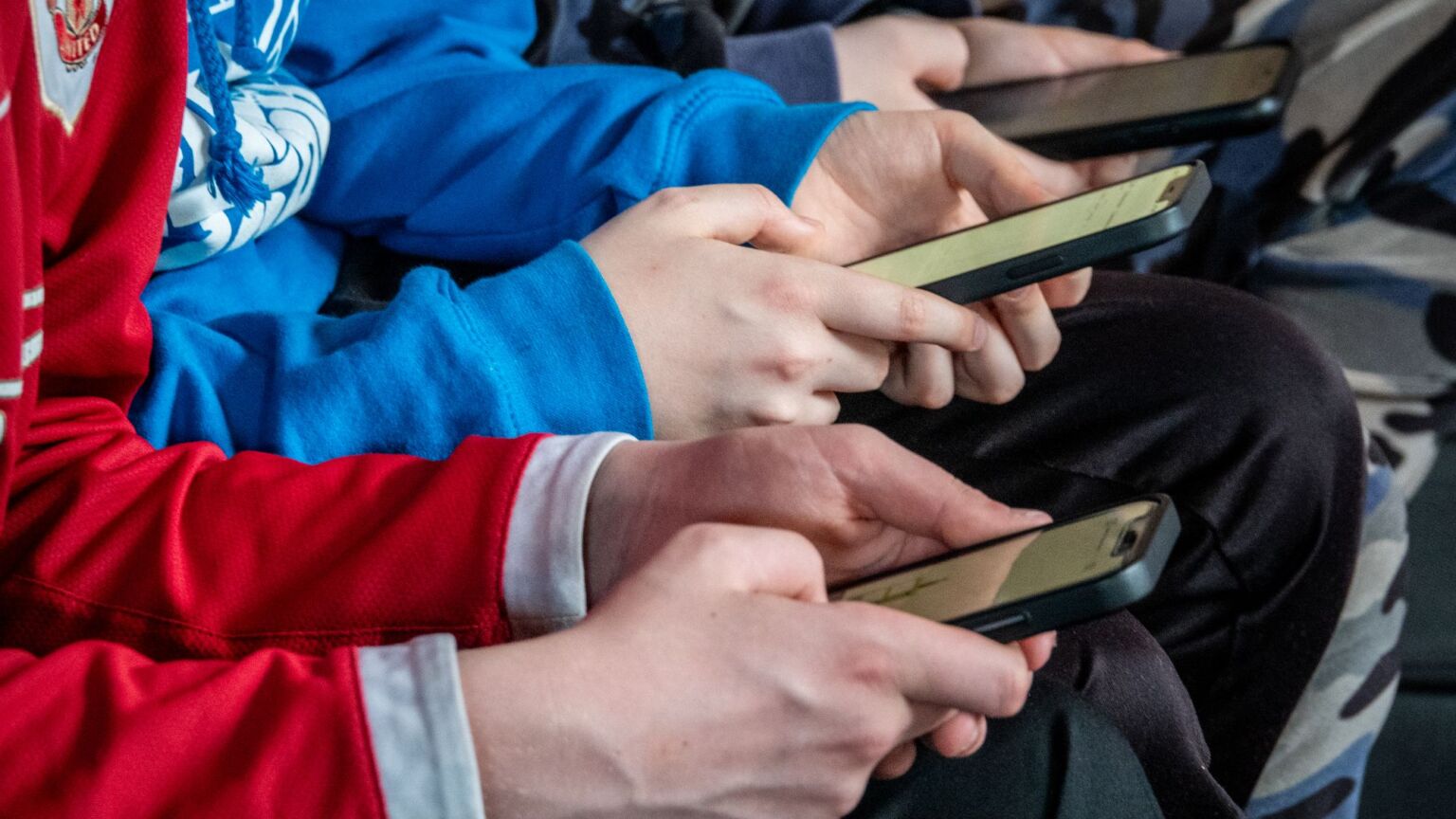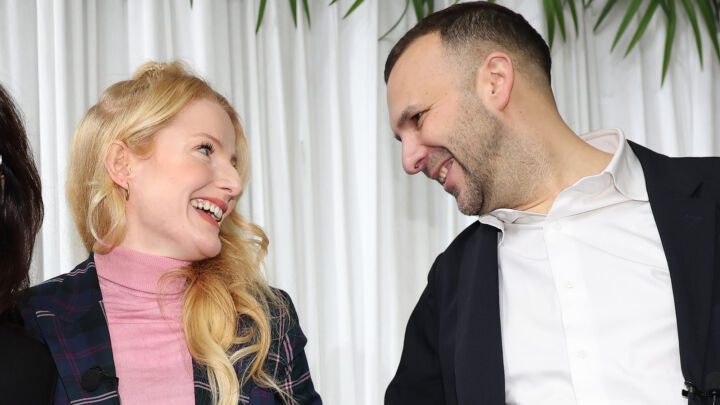Parents, not the EU, should decide what kids can do online
Calls for a Europe-wide ban on children’s social-media use are an attack on parental rights.

Want unlimited, ad-free access? Become a spiked supporter.
Today’s teenagers are a virtuous lot. Compared with past generations, they are less likely to smoke, drink alcohol or have sex. Their sole vice seems to be spending time on social media. Almost all teenagers now log on daily, according to researchers, with many reporting almost continuous use of apps like TikTok or Snapchat.
But not for much longer, at least if the EU has its way. Several countries are now pushing for EU-wide restrictions on children’s social-media use. So forget mum and dad. Soon it might be Ursula von der Leyen saying ‘nein’ to Instagram.
The panic over kids and social media refuses to go away. Social-media use has been branded ‘addictive’ and linked to a rise in mental-health problems, most notably anxiety, depression and low self-esteem. It has spawned a whole new form of abuse: cyberbullying. It is said to lead to poorer sleep, lower academic achievement and lower ‘life satisfaction’. It has been linked to increased rates of self-harm in girls and ‘extreme misogyny’ in boys. Each new claim sparks calls for schools, tech companies, national governments – and now the EU – to introduce tougher restrictions and age limits for accessing social media.
Later this year, Australia will introduce a nationwide ban on children signing up to social media. France passed measures to block access to social media for children under 15 in 2023. French president Emmanuel Macron coined the phrase ‘digital majority’ to denote the age at which children should be legally considered mature enough for unrestricted access to social media. ‘We must regain control of the lives of our children and teenagers in Europe, and impose digital majority at age 15, not before’, he declared in 2024. It is this concept of ‘digital adulthood’ that countries such as Spain, Denmark and France now want enshrined at EU level.
But ‘digital adulthood’ is a nonsensical concept. For a start, no one is seriously suggesting that children be kept offline entirely. For decades, we’ve been told that digital technology is the only thing children must truly master while at school. Teenagers were, until two minutes ago, routinely feted as ‘digital natives’. Whether we like it or not, much of life today is conducted online, and just as children in the past learnt how to cross roads and write letters, today’s children need to know how to use the internet.
In order to make the case for ‘digital adulthood’, some seriously suggest that social media is even more addictive than cigarettes or alcohol. But the comparison falls flat. Unlike smoking, which comes with well established health risks, which we trust adults to weigh up for themselves, the ‘risks’ of social-media use are far less clear cut. We might spot correlations between time spent online and levels of anxiety, but whether one actually causes the other is debatable. Poor sleep and lower levels of life satisfaction might not be because of excessive social-media use, but because of what teenagers are not doing while glued to screens, such as leaving their bedroom and hanging out with mates.
Although they pose as being on the side of parents, the proposals from Macron and his EU counterparts inevitably undermine adults’ authority. In the past, campaigners, international NGOs and supranational bodies like the EU have keenly promoted so-called children’s rights. These rights are usually bogus, such as the ‘right’ to comprehensive sexuality education. They take away the right of parents to raise children in line with their own values. Social-media bans work in the same way. It should be for parents in the home and teachers in school to tell children to put their phones away. Handing this responsibility to government ministers and the European Commission challenges the authority of parents and teachers. As such, it weakens the very notion of adulthood.
For parents and other adults, assuming responsibility for children may well mean limiting the time they spend online and encouraging them to experience the world beyond a screen. But we need to be suspicious of government ministers eager to keep teenagers off social media.
For a start, it is hard not to see this latest potential crackdown in the context of a broader panic about so-called mis- and disinformation. Fearful of citizens turning away from mainstream journalism and debating freely on social media, national governments and the EU are keen to have greater control over what all of us encounter online. Unable to monitor and control social media entirely, they see restricting teenagers as a good place to start. Not least as teens are also being ‘seduced’ by populist parties online, apparently.
The panic about teenagers and social media has become a pretext to control what children can and cannot read online. Don’t be surprised if the authorities come for the adults next. Their authority has already been undermined.
Joanna Williams is a spiked columnist and author of How Woke Won. Follow her on Substack: cieo.substack.com/
£1 a month for 3 months
You’ve hit your monthly free article limit.
Support spiked and get unlimited access.
Support spiked – £1 a month for 3 months
spiked is funded by readers like you. Only 0.1% of regular readers currently support us. If just 1% did, we could grow our team and step up the fight for free speech and democracy.
Become a spiked supporter and enjoy unlimited, ad-free access, bonus content and exclusive events – while helping to keep independent journalism alive.
———————————————————————————————————————————–
Exclusive January offer: join today for £1 a month for 3 months. Then £5 a month, cancel anytime.
———————————————————————————————————————————–
Monthly support makes the biggest difference. Thank you.











Comments
Want to join the conversation?
Only spiked supporters and patrons, who donate regularly to us, can comment on our articles.